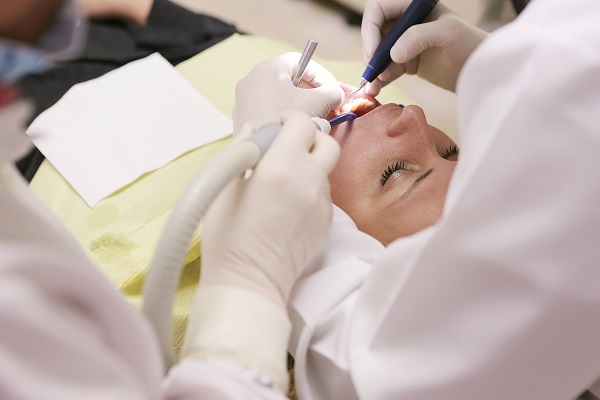There’s no such thing as a risk free dental procedure. At the law offices of Fort Lauderdale dental malpractice attorney Lisa Levine, we’ve represented many clients who have suffered lingual nerve damage and other problems after undergoing a “routine” dental procedure.

What is the Lingual Nerve?
The lingual nerve runs downward inside the jawbone and along the floor of the mouth beneath the tongue. It supplies sensation to the tongue (touch and taste), as well as the gingiva, chin and lower lips (touch).
The lingual nerve’s position in the mouth makes it vulnerable to damage during certain common dental treatments. Symptoms of lingual nerve damage can include:
- Numbness, tingling, or burning sensations in the tongue, chin, cheek, lip, or jaw
- A loss or altered sense of taste
- Difficulties eating, drinking, or speaking
- Inability to tell the difference between hot and cold foods or liquids
- Headaches
- Drooling
Common Dental Treatments That Cause Lingual Nerve Damage
There are many dental treatments that can cause lingual nerve damage, including:
- Extraction of the mandibular third molars, or wisdom teeth
- Local anesthetic dental injections
- Root canals
- Dental bridge work
- Sublingual or Submandibular gland (salivary glands) surgery
- Surgical insertion of dental implants
The damage is often caused by errors while using various dental tools and equipment, including elevators, periosteal elevators, hemostats, and cutting instruments (scalpel blades, drills, needles, etc.).
In minor cases, the lingual nerve damage may resolve itself. However, the most common treatment for lingual nerve damage is surgery. In many instances, the damage can be so severe that treatment would be ineffective.
Lingual Nerve Damage Dental Malpractice
If a patient suffers lingual nerve damage as a result of a dentist’s negligent error during a dental procedure, then they may have grounds for a dental malpractice claim.
Not all dental errors rise to the level of medical malpractice. To prevail in a Florida dental malpractice suit, you must be able to prove that:
- A dentist/patient relationship existed;
- The dentist acted negligently during a dental procedure;
- This negligence caused your injuries; and
- You suffered damages as a result of these injuries.
Prevailing in a lingual nerve damage malpractice suit can be a difficult undertaking. In addition to proving that their injuries were a result of malpractice, patients must also establish a dollar value for the pain and suffering caused by the nerve damage. It’s recommended that patients who have suffered lingual nerve damage as a result of a dentist’s negligence contact a personal injury attorney with experience in dental malpractice litigation.
Speak to a Fort Lauderdale Dental Malpractice Attorney about Your Case
Lisa Levine is a nationally recognized Fort Lauderdale dental malpractice attorney. She has represented many clients who have suffered lingual nerve damage and other dental injuries as a result of a dentist’s error. For example, in one case she obtained a $225,000 settlement for a client injured due to a botched root canal. Lisa represents clients in Fort Lauderdale, Weston, Boca Raton, Pembroke Pines, Oakland Park, Sunrise, Plantation and other Broward County communities, and throughout Florida.
If you’ve been injured as a result of a dentist’s mistake, contact the offices of Lisa Levine without delay. Lisa is eager to review the details of your case, answer any questions you may have, and provide sound, professional advice on the best way to proceed with your dental malpractice claim. Dental malpractice cases are handled on a contingency basis, which means there are no upfront costs to Lisa’s clients and she only collects a fee after she’s secured your settlement.
